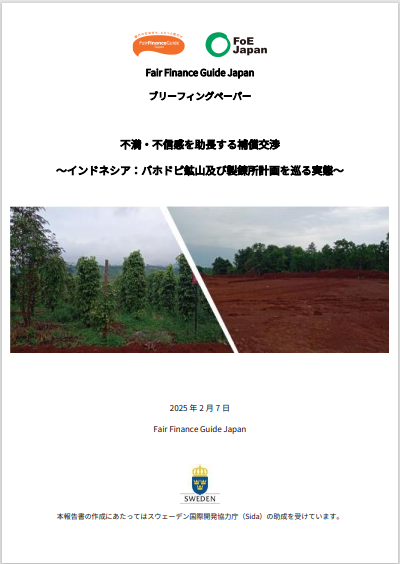"Compensation" that only creates Disparities, Dissatisfaction and Distrust -The Truth behind Bahodopi Nickel Mine and Smelter Project in Indonesia
PT Vale Indonesia (PTVI, formerly known as Inco Limited), a long-time operator of the Sorowako nickel mine in the neighboring province of South Sulawesi, has been actively preparing for a new mine in the Bahodopi District of Morowali Province since 2013. Due to weak diligence practices by its investors and lax ESG policies by the Japanese banks that indirectly support them, the residents in the impact area have experienced predatory compensation negotiations leading to disparities, dissatisfaction and distrust among the communities.
PTVI began this development in addition to its expansion in Sorowako to meet global demands for nickel and an Indonesian State’s growth strategy promoting battery supply chains. There are, however, multiple issues of concern not just with regard to the concession area targeted for development for the Bahodopi mine which includes areas where villagers have lived, cultivated fields, and make a living but also with regard to connected developments in neighboring districts.
Furthermore, it should be noted that the construction of the mine and smelter may have an impact on the local fishing industry, causing a decline in people’s income.
PTVI's development of the Bahodopi Mine and construction of the smelter has been beset with major problems in terms of consultation and negotiation with the local stakeholders. However, the ESG policies announced by Japanese financial institutions do not require the borrower to obtain free, prior, and informed consent (FPIC) from the residents unless they are Indigenous Peoples. Furthermore, most Japanese financial institutions apply their already narrow ESG policies only to project finance.
As a result, Sumitomo Metal Mining Co.(SMM), direct investor in PTVI and Mitsui & Co., who is a major investor in PTVI’s parent company Vale S.A. have been allowing PTVI to operate with disregard of international standards, with support of financial backings by Japanese banks.

